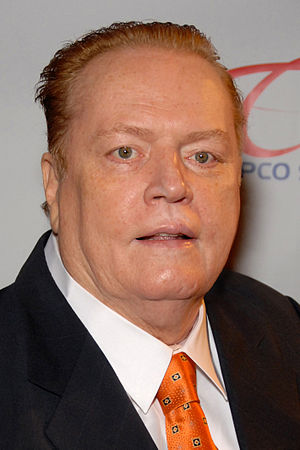The following two quotes come from an article I stumbled across this morning, Flynt’s master plan, written by Jonathan Kay for the National Post on a new book about the place of porn (or at least pornographic ideas) in the shaping of America.
Before I send you over to the article, give the two quotes a read and then ponder for a few moments what you think they mean.
The [Playboy] magazine’s undercurrent (which now seems naïve and quaint) is that male sexuality can serve as a bonding agent among men, one that puts the lower and middle classes into freemasonry with their betters: Since we’re all enjoying the same centerfolds, surely we all appreciate the same fine cigars and the fiction of Vladimir Nabokov?
and
Like Playboy, Hustler also created a spirit of freemasonry among its readers -except this time, it was built around the lowest common denominator of male libido and sublimated woman hatred.
The full article is about a new book, One Nation Under Sex: How the Private Lives of Presidents, First Ladies and Their Lovers Changed the Course of American History, authored by the infamous Hustler publisher Larry Flynt along with an academic coauthor, David Eisenbach.
The gist of the National Article is to suggest that its because of centuries of open sexuality (which he blames on the French) with the prosperity of the western world. Flynt cites the bawdy debauchery of Ben Franklin in his Paris years with his acceptance into Parisian society and in turn their willingness to help the young America’s pursuit of Life, Liberty, and Happiness – attributes Flynt points to as the very type of sexual society that existed in the “sexual carnival” of Parisian swinging scene. ‘
Reading the piece, I’m still a bit flummoxed in Kay’s connecting Flynt’s book(or his ideas) to freemasonry (note the lower case f).
My guess in reading the piece is that Kay sees the work of Flynt and of Hugh Heffner, the publisher of the men’s magazine Playboy, into a mosaic of modern male bonding. As he says of Hustler’s content that it puts the lower and middle class man into their own society, into freemasonry using the “lowest common denominator of the male libido and sublimated woman hatred.”
He makes an interesting argument, but I can’t quite find an agreement with his perspective. Perhaps the men’s magazines provide some means of mental association, much the same way a baseball game might, but it strikes me more as an association of apples to oranges in that where the nudie magazines associate with the base and grubbiness of mankind, the fraternity of Freemasonry bases its association on the higher nature of man, his higher spiritual self rather than his base nature.
But that’s only my take. Give Kay’s article a read and tell me if you think he missed the mark. How he mixed Larry Flynt, Hustler, and freemasonry, I’m just not getting it.
Give Flynt’s master plan [now archived] a read over at the National Post a read and then come back to tell me what you think.


A “freemasonry,” lower-case, used in a context like that has entered the language as an expression meaning a secretive or immediate association between people, often based on shared interest, knowledge or something in common.
Hey family don’t go to far south on this one, people already got plenty on there plate, this I do know we can’t get around it, we must stay on point, we all still have that goal we seek, no disrespect sir. Moving Forward
Interesting, so its become an adjective now to describe something? I can see that as a slang usage, but in mainstream media?
It’s not a new usage, if anything it’s a bit dusty now since readers wouldn’t all go “oh yeah, just like the Masons” in response to the reference. My Oxford English Dictionary’s first citation of it being used in this way is from 1810. There’s a nice reference in there from the 1860s to two children’s “freemasonry of childhood.” The two dictionaries I’ve glanced at since seeing the post both define it as “instinctive sympathy.”
It seems to me that the author is using the term ‘freemasonry’ to mean an esoteric or subconscious yet shared experience; and a level of male bonding. The article then goes on to provide a particularly weak and superficial example of this genericized term.
In the same way that one doesn’t necessarily comprehend just how vibrant a colour is, or how pure a note is until one has something with which to compare it, I think it is this juxtaposition between the Freemasonry we know and the freemasonry the author describes that forcibly delineates the profound nature of Freemasonry.
The word freemasonry, with a lower-case “F”, is explained in the dictionary as, “secret or tacit brotherhood; fellowship; fundamental bond or rapport: the freemasonry of those who hunger for knowledge.” And also, “( initial capital letter ) the principles, practices, and institutions of Freemasons.” It’s a real English word, with the lower-case “F”, but isn’t referring to the Fraternity.